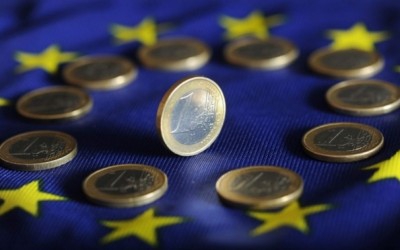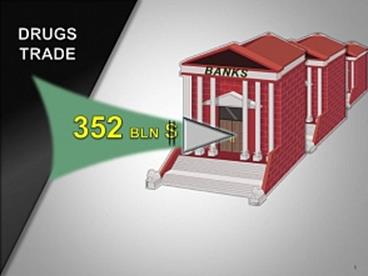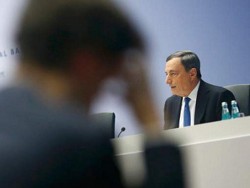Last week the attention of Europeans was drawn to the two-day summit of EU leaders. The Central event was adopted jointly with Turkey a plan of action to combat the immigration crisis. Irritated uncontrolled influx of illegals, Europeans now expect that migration in the continent would be put in order. Against this background, in the shadows were other issues on the agenda of the summit. In particular, the meeting of EU leaders with European Central Bank head Mario Draghi. However, the discussion of monetary policy of the ECB was held behind closed doors. The media were only some of the results of this meeting. Chief among them German Chancellor Angela Merkel did not support the plans of Mario Draghi in the EU banking Union.

The growing European debt had influenced the Germans
For Mario Draghi the centralized control of banking was only part of the objectives of the ECB. Draghi not least we wanted to improve protection of savings of Europeans through the joint insurance of deposits and receive the possibility of direct recapitalization of troubled banks in need and without much consultation with governments. In addition, there was no need to seek borrowed funds in the international financial institutions, like the IMF. So Draghi had hoped to reassure the financial market of the EU, not recovered from the crisis of 2008-2009.
After a series of meetings and consultations of officials from the government of Germany Angela Merkel supported the idea of a banking Union in the EU, considering it appropriate in the medium term. It has been nearly four years, and now the German Chancellor has sharply opposed to the new banking structure. What influenced the position of the German government?
Taking a medium-term perspective, the Germans hoped to create a banking Union after the relief of the threats caused by the debt crisis in Cyprus and in Greece. Subsequent events showed that the crisis has only grown, affecting other countries of southern Europe. In Greece it exceeded all conceivable scales and required investments of hundreds of billions of euros, mostly from the German economy.
Much good it no more. Greek debt has increased from 89 billion euros in 2012 to 312 in 2015. In this case, each tranche of financial aid called for new consultations, negotiations and approvals, the center of which was Germany — the main donor of European Finance.
Debtors this is pretty unnerving, because the idea of creating a pan-European Bank in the form of Union which would be directly funded if necessary, for national banks, like not only the Greeks but also the Portuguese, the Spaniards, etc. They are certainly more comfortable to deal with docile Italian Draghi, the German bankers, economists and the German government.
Here at this meeting, Portugal insisted that the European leaders have assumed a formal commitment already at the next summit, scheduled for June, to identify specific steps to create a banking Union in the EU. The Portuguese initiative was actively supported by many countries. But all outweighed the word of Angela Merkel.
The German Chancellor has entered strongly against. The Germans do not want to provide to their load, “joint insurance of Bank deposits”. Now Merkel stipulate their conditions are not misty a medium-term perspective, but quite specifically: the European countries must deal with its debt burden and increase financial stability. Without it the Germans will not even discuss the creation of a European banking Union.
European money becomes quite soft
In European media, where he commented on the leak of information from the March summit, a strong statement of Angela Merkel associated with Germany began in a big election campaign where the ruling CDU became rather precarious position because of the crisis with migrants. Add to this an additional financial burden on the Germans, then us will lose the elections.
The argument, of course, serious. The electoral success has been and will remain the main goal of politicians. And Chancellor Merkel is no exception. But it’s also the way that the economy of Europe today, to put it mildly, is not in the best shape. A week before the summit of EU leaders held a meeting of the governing Council of the European Central Bank, which signalled a very sad situation in the EU: the recovery of its economy has almost stopped in less gone the stock market, the deflation is back.
In this regard, the ECB has taken quite radical measures, He announced a reduction to the zero level of the interest rate, to minus 0.4% — on deposits and 0.25% on margin loans. Has undergone change and the favorite child of Mario Draghi — QE. (Redemption of public and private securities by the ECB money printing.) Monthly amount of this program since April, will increase from 60 billion euros to 80 billion
This program launched last January. Draghi then determined its volume and time frame: to pour into the EU economy is 1.1 trillion. Euro till September 2016. It was assumed that this will raise consumer demand and the stock market will accelerate the pace of growth and to an acceptable level of inflation.
The Germans were actively protested, fear a sharp depreciation of the Euro. However, the threat of deflation and the assignment of Mario Draghi in the form of the right to redeem securities in accordance with the quota of national banks at the ECB (at Bundesbanka she is the eldest) did the German authorities more cooperative.
However, dissent remained. The Federal constitutional court of Germany has consistently (in may, September and October) received three claims against the government and the Parliament, supported the program of the ECB. The names of the plaintiffs the court (in accordance with their wishes) was not disclosed. Their appeals to the FCC has publicly acknowledged only by the Chairman of the political party “Alliance for progress and breakthrough” Bernd Hatch.
A decision on the claims still pending, and the situation in the economy, meanwhile, is only getting worse. Not saved position even lower energy prices. First, they helped the program by the ECB to raise consumer demand, but then all returned to their circles. In February, prices for consumer goods compared with last year fell 0.2%. Emerging deflation slowed down the growth of the economy. The stock market again went into minus. Issues added a low amount of investment.
Not the most favorable background of Eurozone GDP, according to the British magazine The Economist, is still below the peak levels of 2008, while US GDP is already nearly 10% above pre-crisis high of eight years ago. The Euro-dollar exchange rate fluctuates at low values — in the range of 1.12 and creates new problems of European banks and insurance companies. Faced with the difficulties and the German economy. Last December, decreased industrial production and does not give much hope for sustainable growth.
The German media meanwhile week together discussed problems of the Russian Crimea and even came to the complacent conclusion that “Crimea Russia can not afford”. Although today it is obvious that this Germany has become “unaffordable” to carry the function of the European economic locomotive. This was confirmed by Chancellor Merkel who has avoided the further integration of the banking community in the EU. Looks like Germany is tired of an unstable Europe, and she caught her sores…
Author Gennady Granovsky








